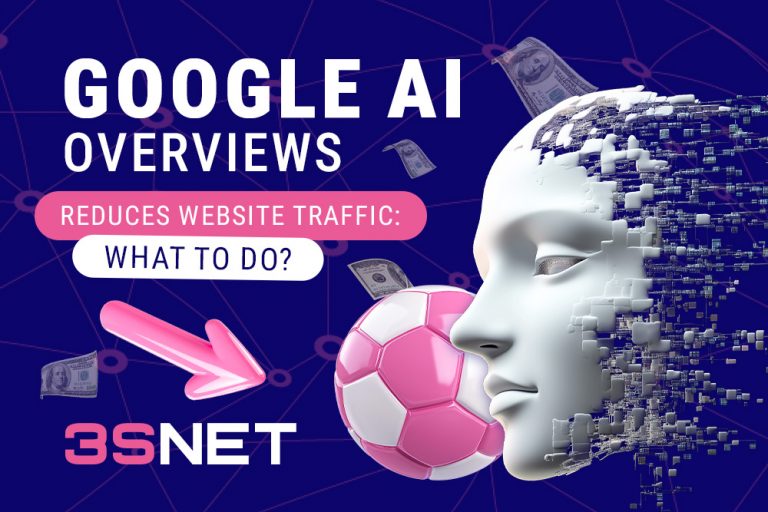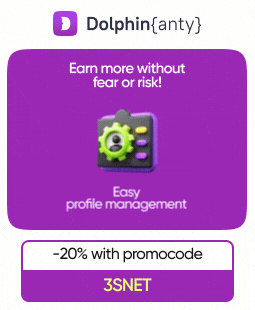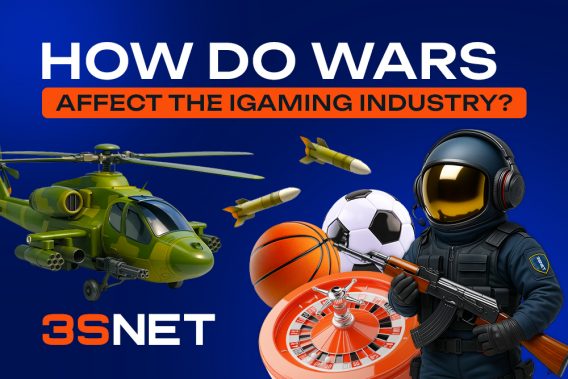
Publication date: 29 July 2025
In summer 2025, Pew Research Center published a study about AI Overviews titled “Google Users Click Less When AI Summaries Appear in Search Results.” At 3S.INFO, we’re analyzing the implications for the search engine ecosystem, gambling and betting advertising, traffic flows and revenues. Crucially, we’re addressing the question: what’s the way forward for content creators in this scenario?
This content serves informational purposes only. We do not endorse violations of local laws or service policies. Please familiarize yourself with local regulations and comply accordingly!
- What are AI Overviews? AI Overviews is a Google search feature powered by artificial intelligence (AI) that generates concise answers to user queries. Displayed at the top of the search engine results page (SERP), it provides summarized information extracted from various sources, eliminating the need to click through to external websites.
AI Overviews vs Google Search Results: Analysis Findings
Google’s ready answers reduce website traffic because users no longer need to click through to external links. Why?
58% of users have encountered AI Overview at least once in March 2025.
Google users who see AI summaries click on links to other websites less frequently than those who don’t see them.
- With AI Overview: Click-through rate for regular search results is 8%.
- Without AI Overview: Click-through rate rises to 15% (almost twice as high).
Additionally, users rarely click on sources within the summary itself. This happens only 1% of the time when they see an AI answer. Moreover, 26% of users close their search session altogether after receiving such a result (+10% compared to traditional search results).
Consequences for Google’s Search Ecosystem
- Decreased Engagement: AI-provided answers reduce depth of interaction with search results.
- Publisher Risks: Dual pressure — fewer clicks and reduced dwell time in search sessions.
- Behavior Shifts: Rise in “quick” sessions without navigation to external resources.
Impact of AI Overviews on Website Traffic
- Publishers and webmasters may lose significant portions of their audience due to this feature.
- Lower income from ads and affiliate programs.
- Independent and midsize platforms rapidly lose market share.
Google is gradually altering its search mechanics, making it more self-sufficient and reducing dependency on external resources. The company’s stance emphasizes that AI-overviews “accelerate complex knowledge acquisition” and provide “entry points” for further clicking. However, independent metrics indicate that content is becoming less accessible to actual websites.
As a result, website owners are already seeking solutions:
- Testing content protection and subscription-based access for AI services.
- Developers (Cloudflare, Ahrefs, etc.) introducing paid plans for crawlers.
- Increased demand for private language models and business-oriented add-ons.
Pros and Cons for the LLM and Language Model Industry (GPT and Others)
| Pros | Cons |
| Surge in AI Integration Demand: Both large corporations and niche projects are eager to incorporate AI. | Independent developers struggle to acquire traffic and data as major players lock down the ecosystem. |
| New Monetization Scenarios: Direct monetization through APIs, enterprise solutions, and custom model training. | Platforms limit indexing and training of third-party models, sparking conflicts over original content. |
|
(Cons outweigh the pros) |
Generated answers may erode user confidence, posing a rollback risk for AI-powered summaries. |
Dealing with AI Overviews: Trends and Insights for Webmasters and Marketers
AI Overviews mark a new phase in the competition for user attention and control over traffic. Adaptability will determine survival. Quick adjustment to monetizing one’s own AI, defending copyrights, and finding partnerships with major platforms will keep businesses afloat.
- In the coming years, publishers will seek alternatives to search monopoly: direct apps, email marketing, and building loyal communities.
- For optimizers: Focus on detailed answers and structured data, particularly in niches with a high proportion of question-based queries.
- The LLM industry and GPT-based services must brace for tough negotiations regarding access to fresh content — “just feeding” their models won’t suffice anymore.
Traffic arbitrage in the gambling and betting niche requires specialized AI technologies and strategies—due to high competition, strict traffic requirements, and audience specifics. In this article on 3S.INFO, we explore how artificial intelligence is used to promote casinos and bookmakers. Expert recommendations, real-world examples, and a selection of the best AI tools.
The article incorporates current research findings from Pew Research Center, Ahrefs, BrightEdge as well as commentary from media outlets and industry analysts.
Share it with your friends via favorite social media


























